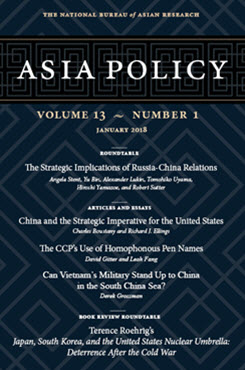The Chinese Communist Party's Use of Homophonous Pen Names
An Open-Source Open Secret
David Gitter and Leah Fang examine the CCP’s use of homophonous pen names in the media to transmit official CCP views and assess this system’s utility as a credible information source for foreign analysts.
EXECUTIVE SUMMARY
MAIN ARGUMENT
The CCP uses an evolving system of homophonous pen names to write authoritative commentary that accurately propagates its views. Since the mid-1990s, this system has been repurposed to circumvent growing resistance to CCP propaganda by both the Chinese public and the ranks of the CCP itself. Its commentary covers policy-relevant topics pertaining to China’s most important domestic and foreign affairs, and at times has been used to issue ominous warning statements to foreign countries over sensitive areas of dispute. The article concludes that the pen names investigated within verily represent the views of their superior regime organ. While the system’s effectiveness to achieve its intended purpose seems uncertain, these commentaries provide a readily exploitable resource for foreign analysts that can supplement the long-monitored and more authoritative premium commentary vehicles of the party mouthpiece, the People’s Daily.
POLICY IMPLICATIONS
- If foreign analysts systematically monitor and analyze the messages transmitted by the CCP’s homophonous pen name system, then the policymaking community can take advantage of more complete information to devise more effective China-oriented policies.
- Analysts can accurately identify new homophonous pen names by understanding the history of established pen names and the commonalities found in their linguistic components.
About Asia Policy
Asia Policy is a peer-reviewed scholarly journal presenting policy-relevant academic research on the Asia-Pacific that draws clear and concise conclusions useful to today’s policymakers. Asia Policy is published quarterly in January, April, July, and October and accepts submissions on a rolling basis. Learn more


